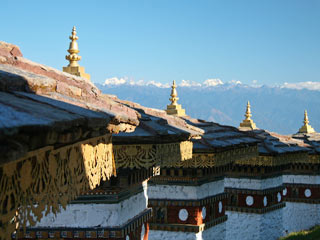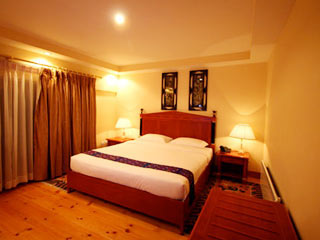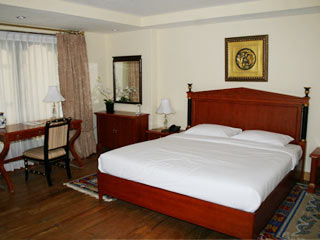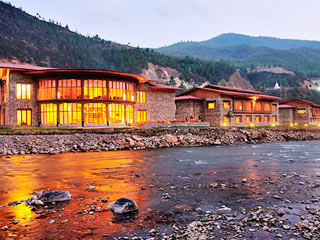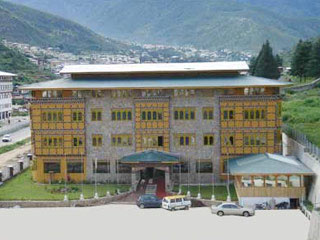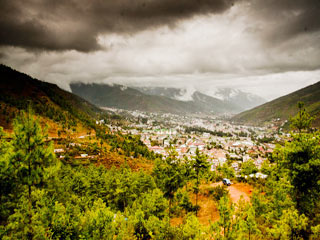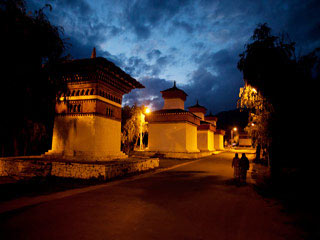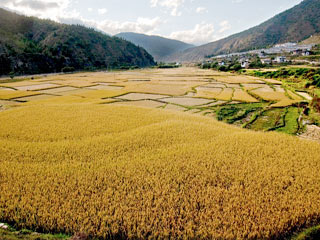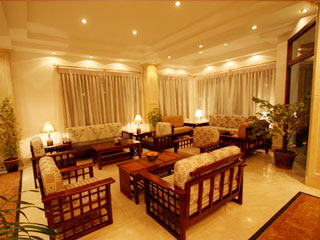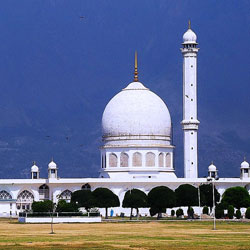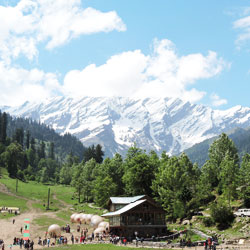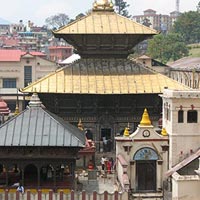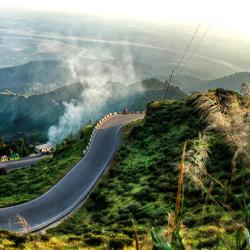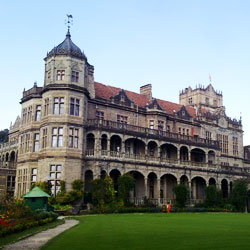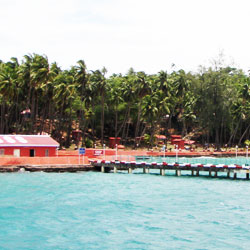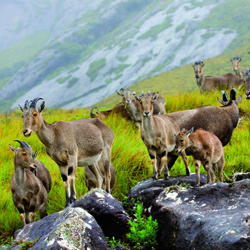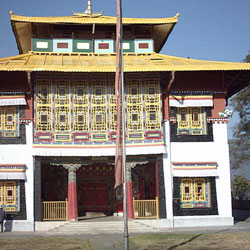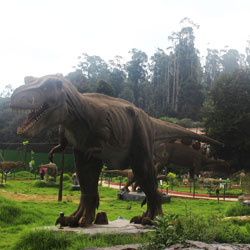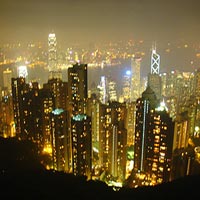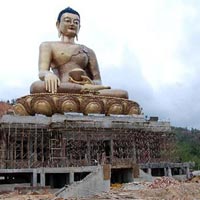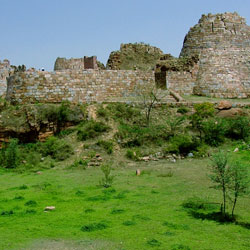krishnaairtravel@yahoo.co.in - GST No. 06AAJFK1162A2ZV

+91-9818070030 Call Us
Punakha and Thimphu Tour Overview
Thimpu Secluded in the towering heights of the Himalayas, on the banks of the Wangchu River, Thimphu is known to be one of the strangest capital cities in the world. With no glitzy towers, urban grime or traffic signals, it has consciously stayed away from modernisation and sought to fiercely guard its identity against all else. Although little recorded history remains of Thimphu's true foundation, heritage and traditions have helped shape an identity that is unique to Bhutan. Archaeological evidence tell tales of ancient settlements here around 2000 BC, but no written records before 2 AD were ever found. Lost in time, and forgotten by most, the city was revived in the 8th century AD by a Buddhist monk, Guru Padmasambhava, who founded many monasteries here, and established Buddhism.Terraced rice fields, traditional Bhutanese architecture and the all-encompassing innocence of the locals will disarm you completely. Visit the Tashichho Dzong, which is home to the King of Bhutan, and one of the most important landmarks in the country. Study and marvel at the exquisite wall murals at the National Memorial Chorten and gain an insight into Buddhist philosophy. Revel in reading a page from the largest book in the world at the National Library which has a collection of rare editions that date back to a hundred years. Stop over at the post office as you wander into the morning market, and admire curious Bhutanese stamps.Wild and raw, Thimphu's lush countryside is a haven for nature lovers. Trek through the wooded jungles of Jigme Dorji National Park and listen to birdsong. The sign at the entrance which says 'Leave nothing but footprints, take nothing but memories', encapsulates Bhutan's belief in an idealistic state of 'happiness' and living in tune with nature with following a GHP (Gross Happiness Product) instead of GDP (Gross Domestic Product) as a way of living.Lose yourself in the colours of Thimphu when festival season descends with a feverish fervour. The sacred masked dancers stomp and twirl to enact the teachings of Guru Rinpoche at the Thimphu Tsechu (festival). Cheer at a local archery competition as young men compete against each other to show off their skill. Unwind, finally, into the solitary comfort of your hotel room with a warm cup of Bhutanese butter tea and let the peace embrace you softly.Regal and resilient, Thimphu lets you in on an ancient culture that is so virgin and untouched, that it is almost truly a final frontier. Everything you need and nothing more, is what this beautiful Kingdom offers. Spice up your journey with a plateful of fiery hot Bhutanese Chillies, stroll down muddy slopes on the back of a yak or spend the day at a farm learning the nuances of red rice farming. In the afternoon, retire to cheer the crowd at a local archery competition, and take up the challenge of striking bulls-eye. Time stops for you to enjoy every moment here. One of the best qualities about Bhutan is that it keeps you forever guessing. There is no use of routine, time-keeping or discipline. Holiday here if you have been searching for solace in all the wrong places, for as long as you are in Thimphu, nonchalance is simply too hard to resist.ParoHistory laden and mysterious, Paro, Bhutan's most beautiful town, conjures images of ancient warriors, pristine wilderness and long forgotten customs. Strewn with traditional houses, monasteries, bars and ripening rice fields, life is a paradox of choices here. Refresh your mind with old world wisdoms by taking up the challenge to climb to the Taktsang Monastery, nestled on the edge of a precariously high cliff and meditate on the ways of the world. Take in the view of Mount Chomolhari majestically rising in the distance. Unravel mysteries of the unknown at the National Museum which holds together a thousand years of history. Let the scented, fresh breeze from the valley seduce you as you sip slowly on therapeutic Butter Tea. Ta Dzong and Rinpung Dzong are curious little historical gems that will take you down memory lane. Better still, visit a local farmhouse and revel in simpler pleasures of stacking hay, tending to cattle and relaxing after an energizing day out in the fields.Explore the quirkier side of Bhutanese culture, right from protective 'phallus' paintings in the front of homes to drinking Rice Wine and Beer in the town side. Trek into the lush, haunting Paro Valley that once formed part of the historic Silk Route where traders between Central Asia, China and India once carried spices and raw silk from lands afar. Lose yourself in the depths of the endless green of Jigme Dorji National Park, which is known to be the only National Park in Bhutan where you can see all of the country's national symbols. Search the rugged terrain for the rare Blue Poppy, the country's national flower. Used for centuries in Tibetan and Chinese medicine, they grow in abundance in Chelsea Pass. Enjoy the sight of the strange and mysterious Takin, the national animal that many believe to be the divine offspring of the cow and the goat. The proud raven, the national bird which adorns the royal crown, isn't hard to spot with its squawking and its silky black feathers. The hillside is dotted with towering cypress trees, the national tree of the country.Enjoy a game of Dha (archery) when sporting fever descends upon Paro, and cheer with the crowds. Visit the Sunday market and top your bag with a whole range of unique Bhutanese goods like Chugo (dry yak cheese), juniper incense and Khoo (dried cow skin) that is eaten as a snack here. Paro invites you to experience a world that is timeless.Delhi to Paro: Dep at 5:00AM Arr at 7:50AM (April till 12th May).Dep at 02:00PM Arr at 4:50PM (18th May till June end).23-0430-06
Punakha and Thimphu Tour Itinerary
Capital to the tiny Himalayan kingdom of Bhutan, Thimphu is one of the smallest capitals in the world. Thimphu is a gallery of traditional Bhutanese art, architecture, culture, and tradition and above all still so ethnic and pure. For most part of its history, Bhutan has tried consciously to save its culture from the blunt influences of the western world. It is not that modernity has not reached this region, but they are being introduced in a phased and balanced manner that is unheard of at any place in the world. All these make Thimphu and other parts of the country a unique destination.
Upon arrival, proceed for check-in at your hotel. Spend rest of the evening at leisure enjoy the warm dinner before you go to bed.
Meals : In-flight Breakfast will be served and Dinner.
Buddha View Point: Another place from where you can get a good overview of the Thimphu valley is from the Buddha point (Kuensel Phodrang). It is again a short drive from the town. You can pay your obeisance and offer prayers to the Buddha, the largest statue in the country and then walk around and take a glimpse of the valley.
Semtokha Dzong: Monastery was built in 1627 by Zhabdrung Ngawang Namgyal. It houses the Institute for Language and Cultural Studies. The carvings behind the prayer wheel in the courtyard are a major attraction of this temple.
National Memorial Chorten: also known as the Thimphu Chorten, is a chorten in Thimphu, Bhutan, located on Doeboom Lam in the southern-central part of the city near the main roundabout and Indian military hospital.
In the evening, return to your hotel and rest overnight after a delicious dinner.
Meals : Breakfast & Dinner
Dochula view point stop: The first stop after leaving Thimphu is Dochula pass at 3100m. Only about 45 minutes from Thimphu, it offers visitors their first glimpse of the Himalayan range. The road to Punakha branches left and curls its way down to the relatively low lands of the Punakha valley. As you are just about to reach Punakha visit :-
Chimi Lhakhang (Fertility Temple): Situated on a hillock in the center of the valley is the yellow-roofed Chimi Lhakhang, built in 1499 by the cousin of Lama Drukpa Kunley in his honour after he subdued the demoness of the nearby Dochu La with his 'magic thunderbolt of wisdom'. A wooden effigy of the lama's thunderbolt is preserved in the lhakhang, and childless women go to the temple to receive a blessing or empowerment from the saint. It's a pleasant 20 minute walk across fields from the road at Sopsokha to the temple. It crosses an archery ground before making a short climb to the temple.
Punakha Dzong: Majestically standing on an island between the confluence of the Pho Chhu and Mo Chhu rivers, the city's Dzong is one of the most photogenic of all Bhutan's ancient fortresses, and you will see pictures of it hanging in hotels and restaurants throughout the country. The Dzong is joined to the mainland by an arched wooden bridge, and contains many precious relics from the days when successive kings reined the kingdom from this valley.
You can also do river rafting on your own expense.
In the evening, return to your hotel in Thimphu for overnight stay.
Meals : Breakfast, Lunch & Dinner
Trashi Chhoe Dzong: Also called Fortress of the Glorious Religion situated on north of the city on west bank of the Wang Chhu. The Dzong was the site of the lavish formal coronation of the fifth King in 2008 and hosts the city's biggest annual bash, the colorful tsechu festivities. Opening times 5-6PM Mon-Fri, 8AM-6PM Sat & Sun.
National Library: It's of interest mainly as a fine example of traditional Bhutanese architecture, but it's also a good resource for books about Bhutan. Traditional books and historic manuscripts are kept on the top floor and include texts from the famous Tibetan printing presses of Derge and Narthang.
Folk Heritage Museum: This restored three-storey, rammed-earth and timber building replicates a traditional farmhouse and is furnished as it would have been about a century ago.
Textile Museum: is worth a visit to get to know the living national art of weaving. Exhibitions introduce the major weaving techniques, styles of local dress and textiles made by women and men.
Takin Mini Zoo: The Takin is the national animal of Bhutan, and looks like a cross between a cow and a goat. Legend has it that the animal was created by the great Buddhist yogi, Drupa Kunley, and it can be found only in Bhutan and nearby areas.
In the evening, return to your hotel and rest overnight after a delicious dinning.
Meals : Breakfast & Dinner
Drukgyal Ruin Dzong: This was a fortress and Buddhist monastery, now in ruins, located in the upper part of Paro valley. The Dzong was built by Tenzin Drukdra in 1649 at the behest of Shabdrung Ngawang Namgyal to commemorate victory over an invasion from Tibet. In the early 1950s Drukgyal Dzong was almost completely destroyed by fire.
Kichu Lhakhang: Built in 659 by the Tibetan King Songtsen Gampo. It is believed to be one of the 108 temples built to subdue a demoness residing in the Himalayas and is also one of the oldest Temples in Bhutan.
National Museum of Paro: Housed inside the revamped Ta-Dzong building in Paro, National Museum of Bhutan is a cultural museum that has put on display the antique items gathered from different parts of the country.
Rinpung Dzong: is a fortress-monastery that serves both as a civil administrative center and as a monastic home for a community of monks. Most Dzong's were built in the mid-1600s to protect the inhabited valleys from invasion by Tibet. The Paro Dzong was started in 1644 on the order of Shabdrung Ngawang Namgyal, the unifier of modern day Bhutan. Unlike most of the Dzong in Bhutan, it survived the massive 1897 earthquake mostly unscathed, though it was damaged by fire in 1907.
In the evening, return to your hotel and rest overnight after a delicious dinner.
Meals : Breakfast & Dinner
Chele La Pass and Haa Valley: At over 13,000 ft to the west above the Paro Valley is the highest road pass in the country and has amazing views of the Himalaya and most significantly the magnificent Jhomolari, Bhutan's most sacred peak at over 22,000 feet. It is a one and a half hour drive from the valley floor in Paro to the pass. The views from here are absolutely mind boggling as the sweep of the snow clad Himalayas lie before you. On return from Chele La spend the evening at leisure in Paro town for some souvenir shopping and get a feel of local Paro town.
In the evening, return to your hotel, enjoy your dinner and a comfortable overnight stay.
Meals : Breakfast & Dinner
Meals : In-flight Breakfast will be served.
Inclusions
- Hotel
- Sightseeing
- Transfers
Rate Card
Departures Details
| Months | Dates |
| April | 28 |
| May | 5,12,19,26 |
| June | 2,9,16,23,30 |
Tour Cost
| Type | Price |
| Twin Sharing | Rs. 40,999 |
| Single Occupancy | Rs. 52,999 |
| Extra Adult | Rs. 37,999 |
| Child with Bed | Rs. 35,999 |
| Child without Bed | Rs. 32,999 |
| Infant | Rs. 6,999 |
Terms & Conditions
Per person rates (in Rs.) - applicable on 2 persons staying together sharing the same room. All the customers need to carry Either original Voter ID or Passport to travel to Bhutan, and passengers with children need to carry Birth Certificate along with School ID card (ID proof should be valid for 6 months from the travel Date). Service Tax extra as applicable. To travel to Punakha you need to obtain permit by submitting clear scanned copies of the voter ID card and Passport for adults and birth certificate for kids. You also need to carry the original of these documents while travelling to Bhutan. Transportation as per itinerary only (not available at disposal). Package rates are subject to change without prior notice. Meal plan: EP - Accommodation only, CP - Accommodation with breakfast, MAP - Accommodation with breakfast, lunch or dinner, AP - Accommodation with breakfast, lunch and dinner. The package cannot be combined with any other offer. Refund on cancellation depends upon concerned hotel's cancellation policy The above package is not valid during national holidays, festivals, long weekends and New Year.
Packages by Destination
Packages by Theme

